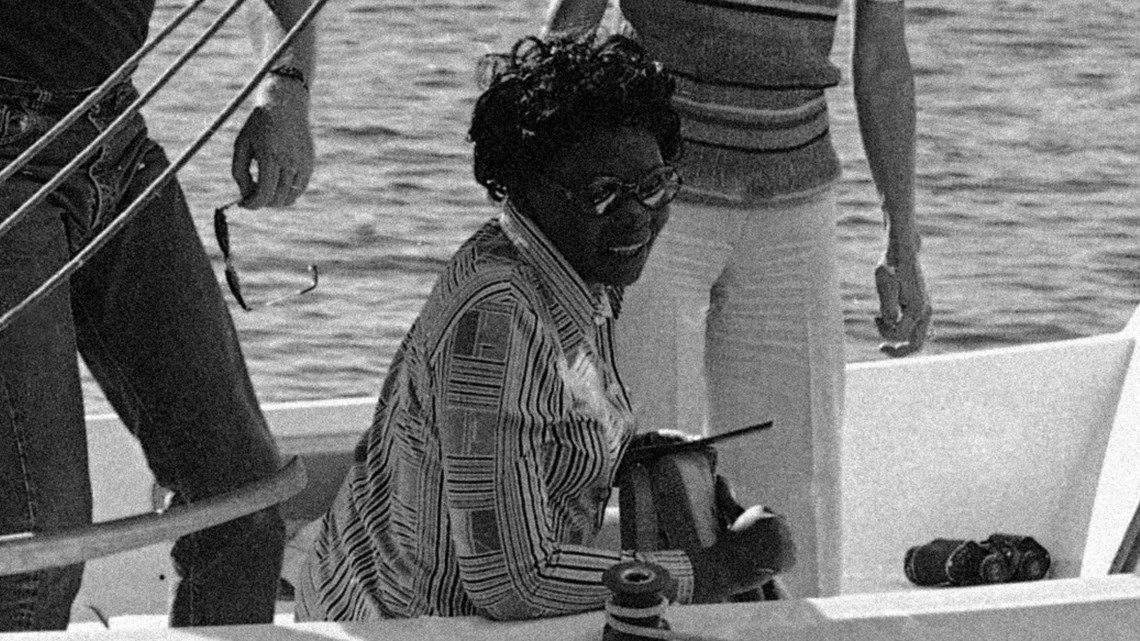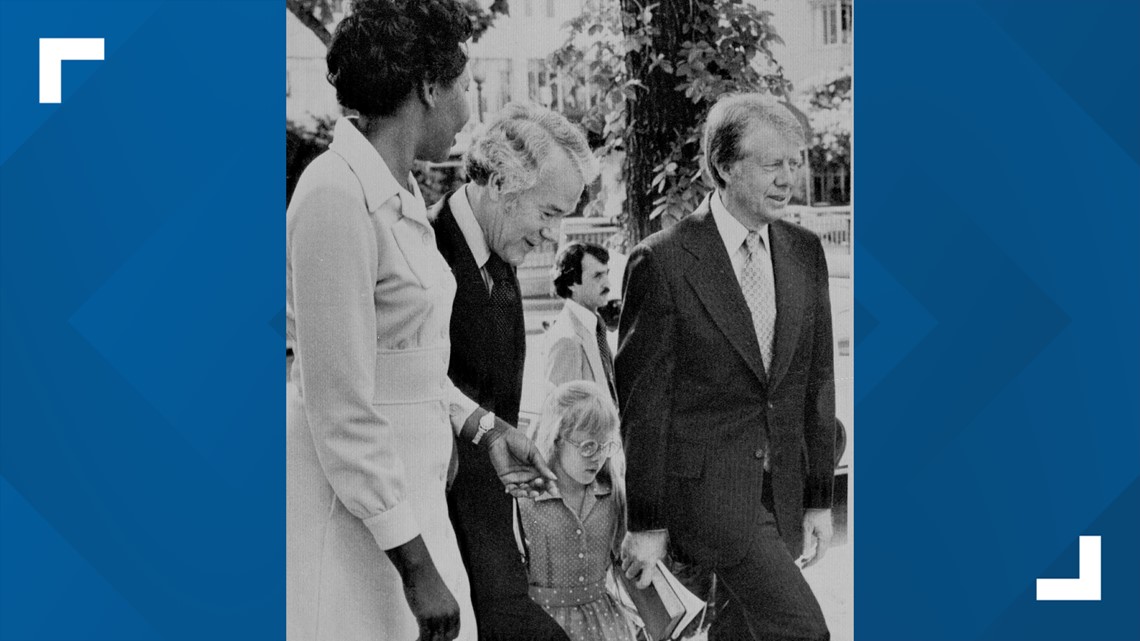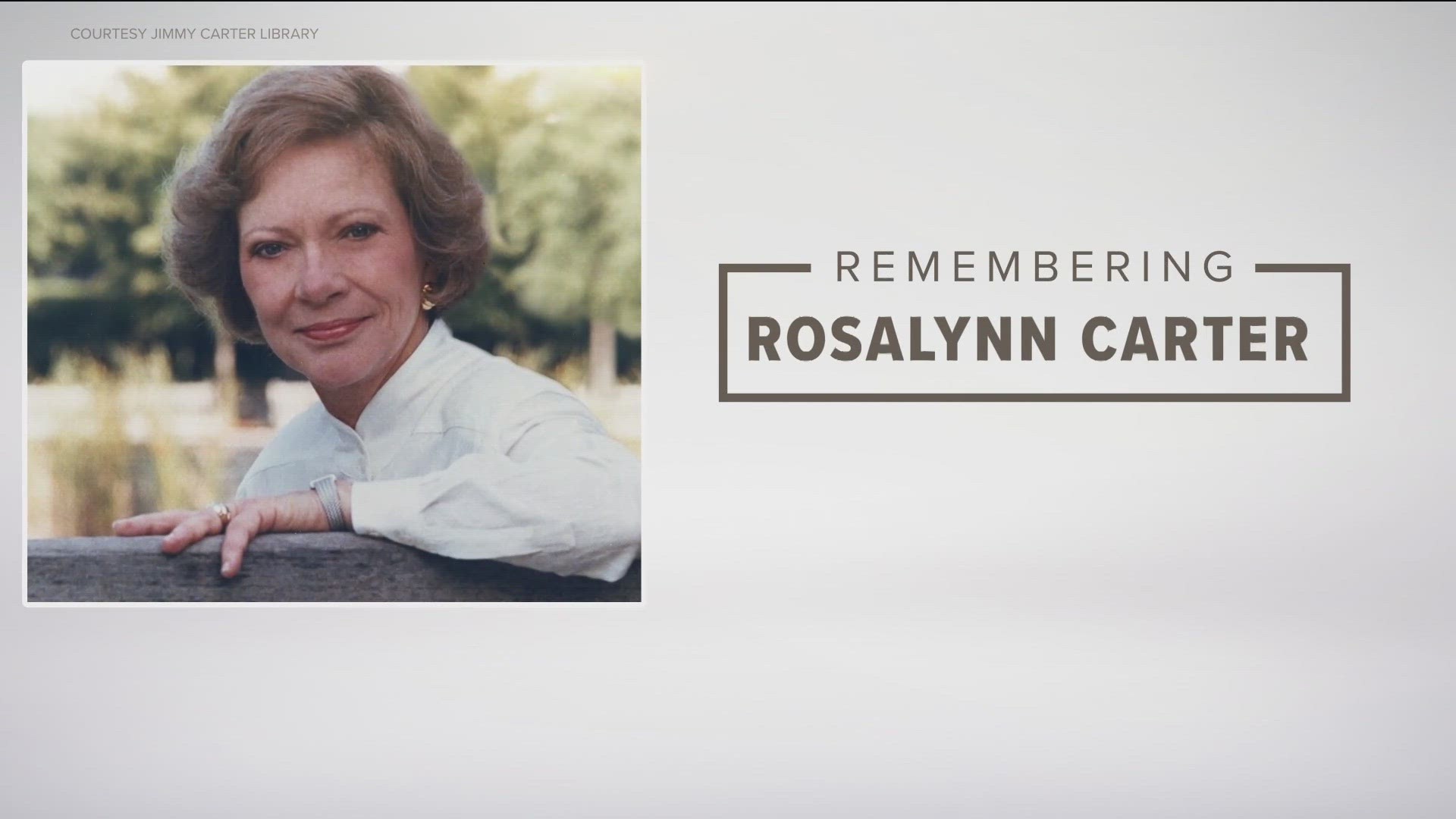ATLANTA — As remembrances and tributes pour in for former First Lady Rosalynn Carter following her death at 96, one story has resurfaced that illustrates her commitment to empathy and understanding.
In April 1970 a Black woman named Mary Prince was at a bar in Stewart County, Georgia, south of Columbus, when her cousin got into an argument with another woman. According to her account of the time, she went outside, heard a gunshot, and saw her cousin and the other woman struggling over a gun.
"I didn’t know anything about guns, but I tried to take it away and it went off," Prince told People Magazine in 1977. "We didn’t know it had hit anyone.”
Prince was arrested and, in her telling, spent four months in jail before she was in court, getting only a couple brief meetings with her white court-appointed attorney before she pled guilty to what she thought was an involuntary manslaughter charge.
Instead, it was murder.
"The whole time in court took less than an hour, and I was sentenced right there to life in prison," she said.




A few months later, Jimmy Carter was elected governor of Georgia, and as he and Rosalynn prepared to take up residence in the Governor's Mansion in Atlanta, Prince interviewed for a job in the residence.
Prince got the job as a maid and, on bonding with the Carter' three-year-old daughter Amy, became her nanny. It set up a course that would see her eventually join the Carters at the White House and receive a pardon. Jimmy Carter described her circumstances in his 2005 book, "Our Endangered Values: America's Moral Crisis."
My last book, Sharing Good Times, is dedicated 'to Mary Prince, whom we love and cherish.' Mary is a wonderful Black woman who, as a teenager visiting a small town, was falsely accused of murder and defended by an assigned lawyer whom she first met on the day of the trial, when he advised her to plead guilty, promising a light sentence. She got life imprisonment instead, and as a trusty was permitted to serve as a maid in the governor's mansion. She was so outstanding that I asked to be designated as her parole officer, and Mary lived with us for four years in the White House. A reexamination of the evidence and trial proceedings by the original trial judge revealed that Mary was completely innocent, and she was granted a pardon. She was fortunate, and could just as easily have been executed. If the victim had been white, we would never have known Mary Prince.
According to the 1977 People Magazine account, Prince had to return to prison in January 1975 when Carter's term as governor ended, and Rosalynn would visit her at the Fulton County Jail and Atlanta Work Release Center where she was a cook.
She said she stayed up all night on Election Night 1976, and with Carter's victory was able to travel to Washington for the inauguration ceremony and ball. The People Magazine story notes:
She spent two nights at the White House and attended an inaugural ball in a gown she had sewn from velvet given to her by fellow inmates. “Before I left,” she says, “Mrs. Carter said, ‘How would you like to work in this big old place?’" A letter from the White House to Georgia prison officials followed, and Mary won her reprieve.
Her relationship with Amy was so close, the young girl "would even cry at night because she hated to see me leave" Prince told People. Prince was a lifelong caretaker - raising her own two sons and looking after her youngest sister when her older sister died when she was just 12.
The end of the Carter presidency proved not to be the end Rosalynn and Mary's friendship - as the Carters moved back to Plains, Prince also made the small town her home and reportedly continued to work for the Carters and babysit their grandchildren.
"I bought my own house 2 blocks from the Carters," she told the Tampa Bay Times in 1993. "And I have my grandbabies every other weekend."
Kate Andersen Brower, an author who chronicled much of Rosalynn's story in her book "First Women," noted in a 2018 Facebook post after an event which Mary Prince attended that her life story is "nothing short of incredible."

